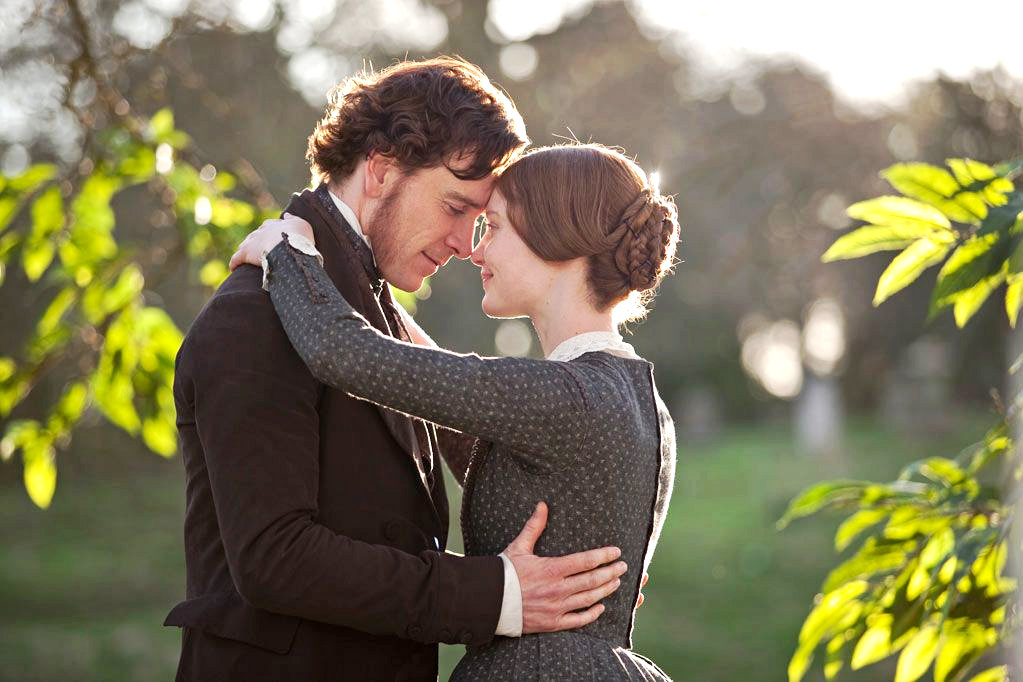
Great books don’t make for good cinema.
After watching several adaptations of Charlotte Brontë’s timeless classic, this opinion had only solidified. Not a single one came close to capturing the beauty and romance of the story. These lackluster adaptations always left me feeling angry at the changes in the story, disappointed in the acting, and irritated at the poor quality.
So it was with great skepticism that I sat down in the theater to view Hollywood’s latest reimagining of one of my favorite novels. Could this movie finally be done right?
The answer to that question was, at long last, “yes.”
Jane Eyre tells the story of an orphan girl who is abused mentally and physically by wicked aunts and schoolmasters through her early years. Filled with unflinching virtue and forgiveness, Jane is able to overcome these obstacles and, despite challenges, excel in discipline and learning. These skills allow her to find work as governess for the young Adele, ward of the mysterious Edward Rochester. Jane and Edward begin an unconventional romance but the mystery that enshrouds his life threatens to tear the two of them apart forever.
Visually transformed from its source material, this film dazzles. While some minor plot points have been eliminated for the sake of time and flow, nothing in the story was changed. The decision to use flashbacks to highlight Jane’s early life worked extremely well. However, the jumps in story may cause slight confusion to those unfamiliar with the plot.
When reading the novel, the most notable feature is the dialogue, the interactions between the characters, and the beautiful prose. Thankfully, the filmmakers did not shy away from these long conversations exuding many-syllabled words and witty exchanges.
Excelling in these scenes were the two leads, perfectly cast and both giving strong performances. Mia Wasikowska beautifully portrayed the strong Jane Eyre, the girl with unflinching morals and a heart of gold. Michael Fassbender was excellent in his role as the mysterious, brooding, and romantic Mr. Rochester. The delivery was solid and the actors disappeared into their roles. Their facial expressions and eyes held unspoken emotion which conveyed such depth of feeling that the dark mysteriousness and passionate romance was not only seen, but also felt.
These emotions were highlighted even further by the outstanding score, written by Oscar-winner Dario Marionelli. High-pitched staccato strings added to the movie's suspense; soft violin-piano duets highlighted moments of romantic calm. Combined with sweeping vistas of England and elaborate sets, the score provided a perfect backdrop to the movie's overall look and feel.
My only complaint: the shots were uneven in production value—at times beautiful, at other times uninspired. While the drabness furthered the movie's Gothic feel, the quality just seemed unprofessional. But this did not detract from the heart and beauty of the film.
As a note to the cautious movie-goer, the film included themes of psychological and physical child abuse, and there is a brief glimpse of a bloody wound. One shot focuses on a fully nude painting, like one you might see at the Louvre. Other than this, the content was entirely unobjectionable.
As the end credits rolled and the applause subsided, I was filled with joy. Joy that the movie was at the same time a solid film and also a great adaptation of one of my favorite novels.
The book is always better than the movie, and this remains true. But, can great books make good cinema? I didn’t really think so until last night, but as Jane Eyre proved to me, the answer is a resounding “yes.”
should i go see this movie? yes or no?
ReplyDelete